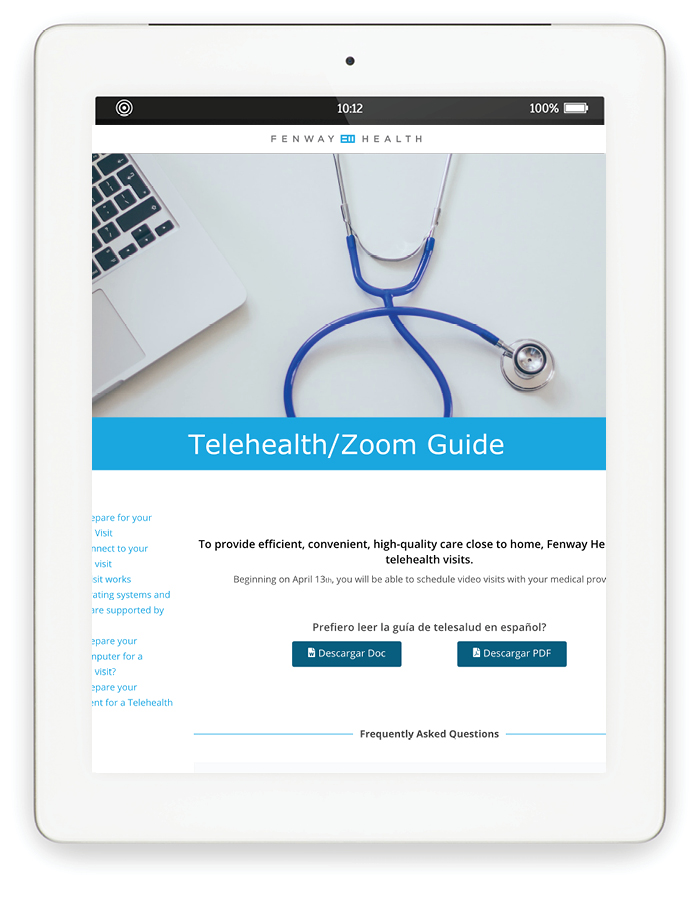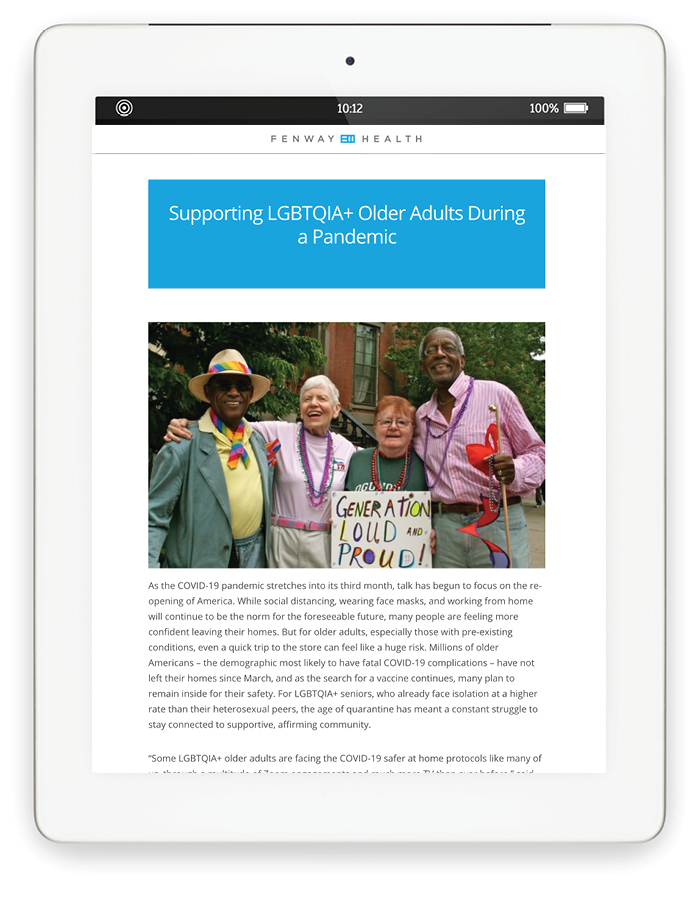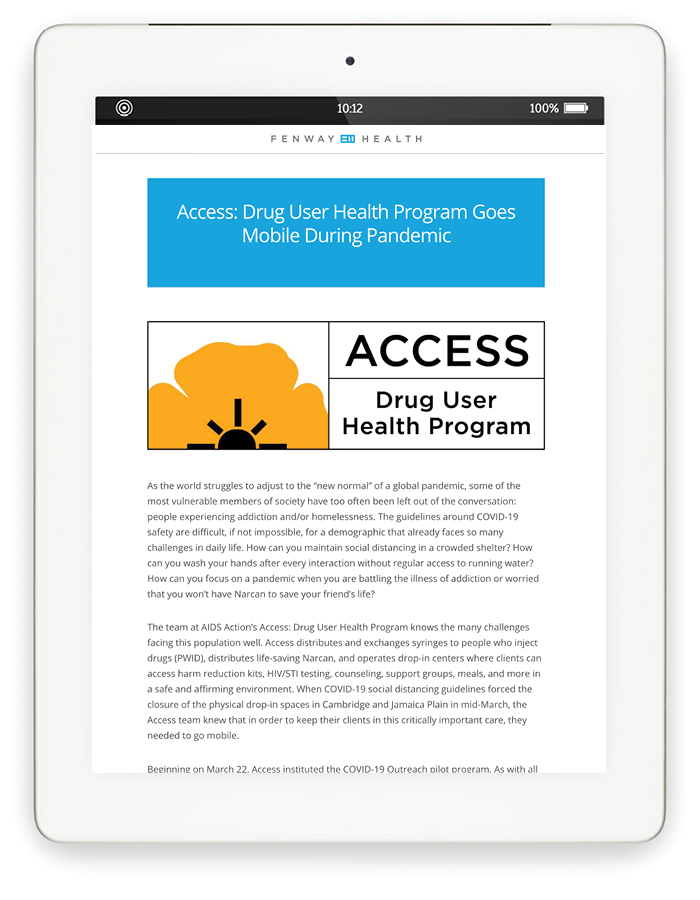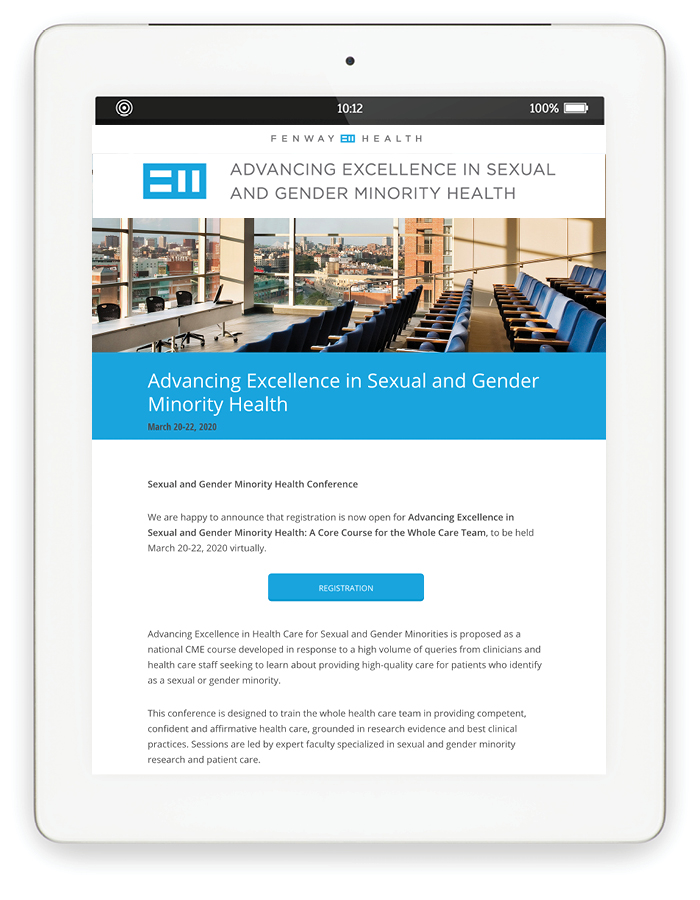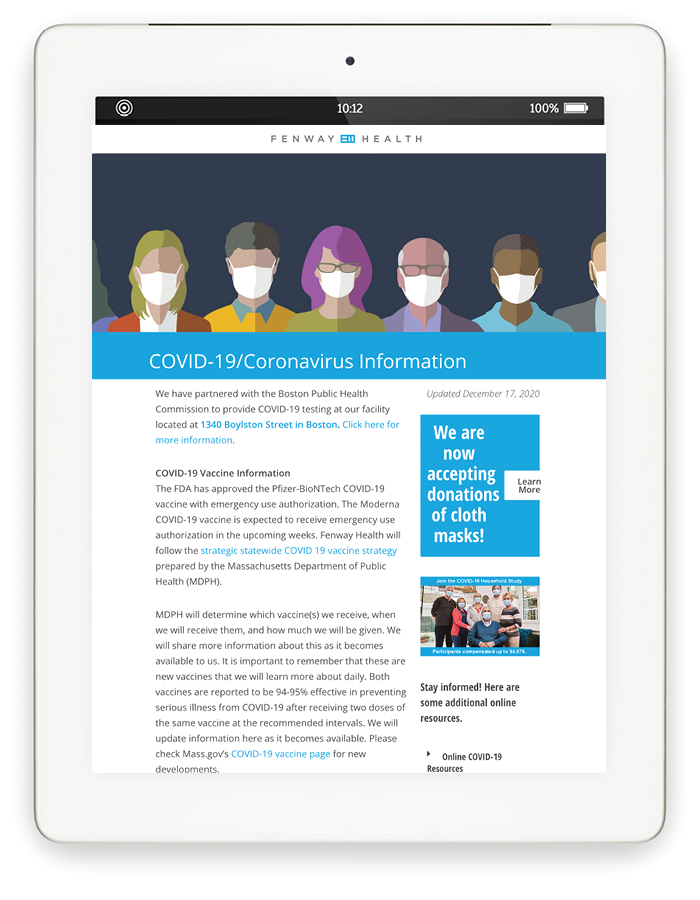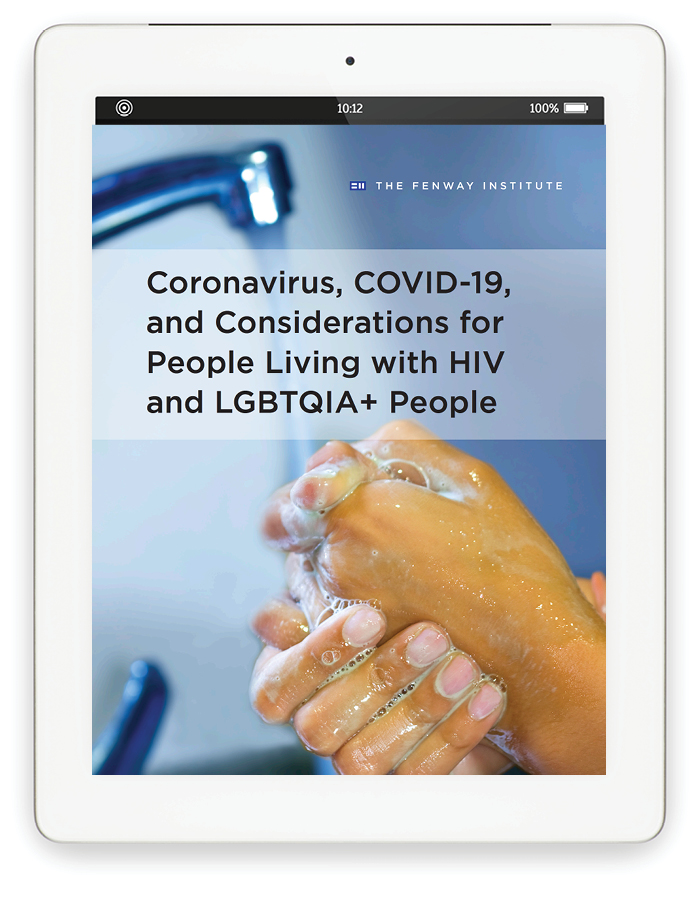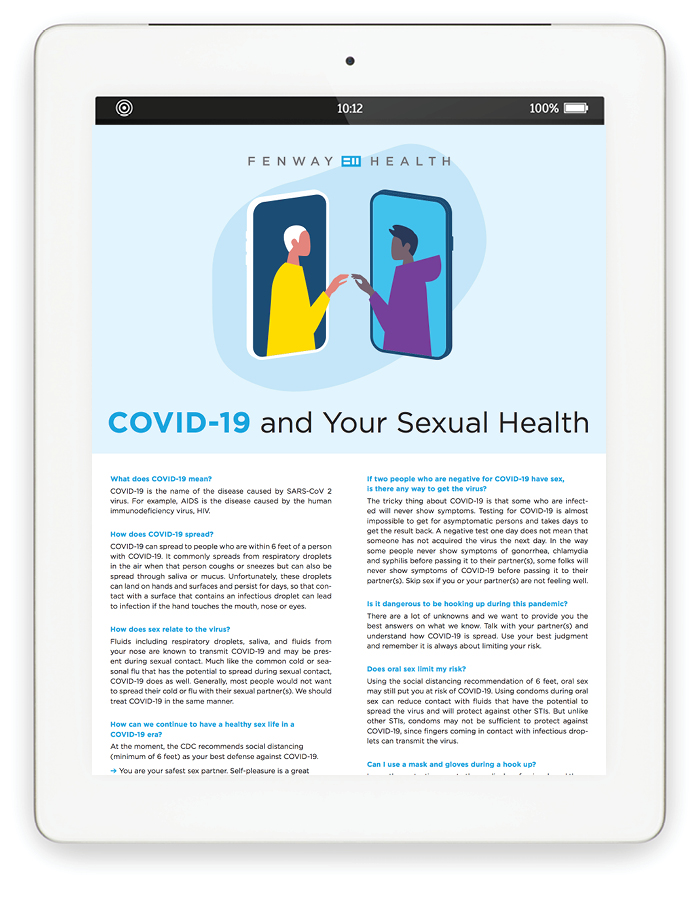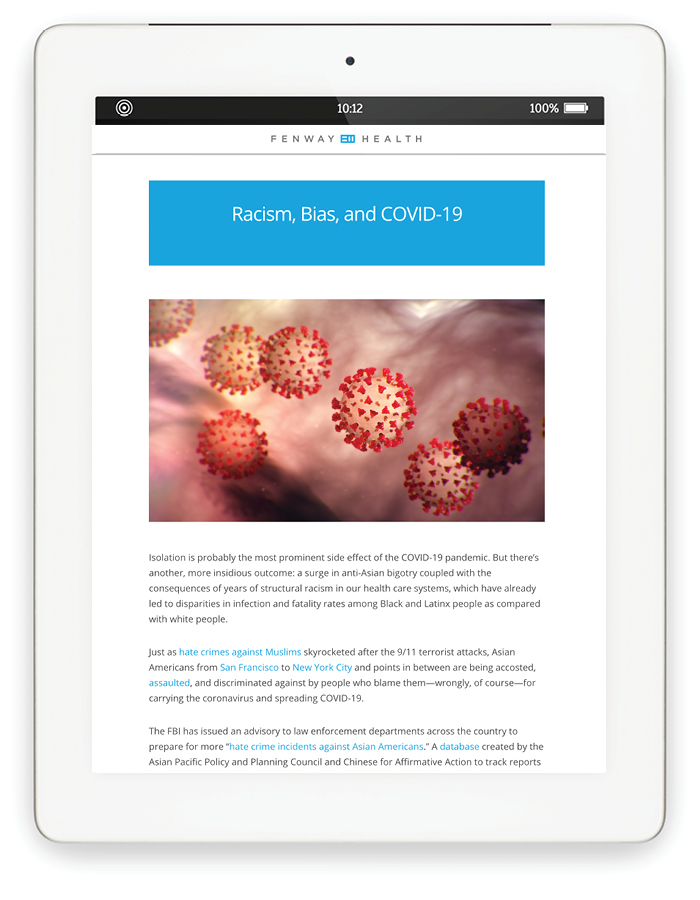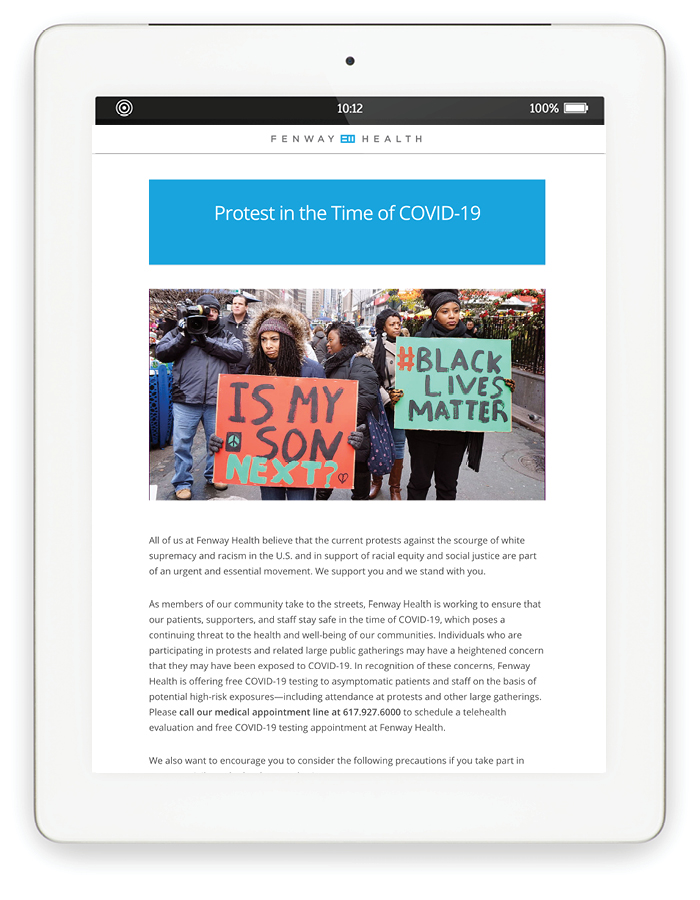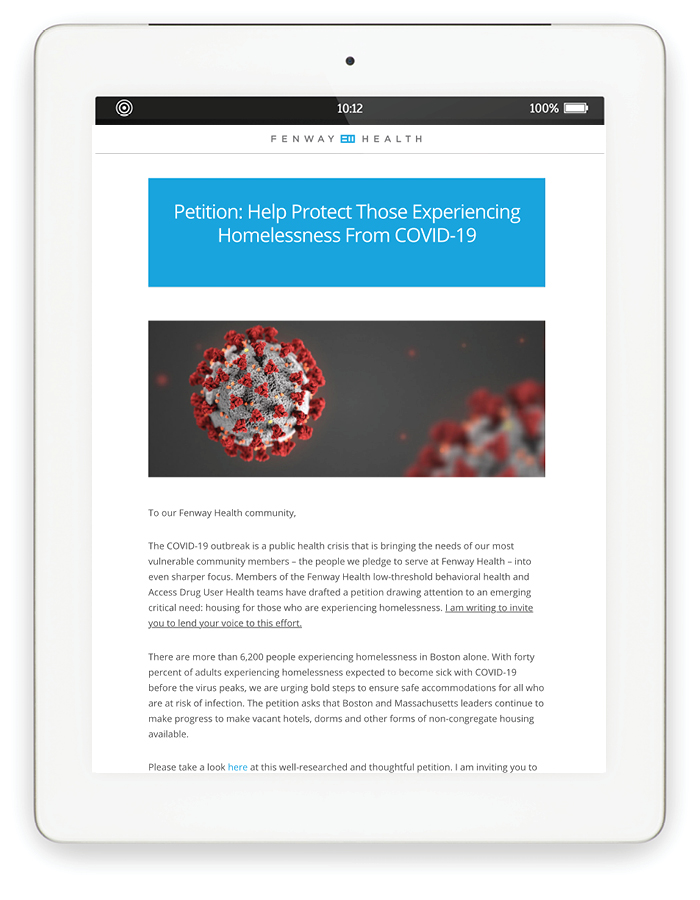RESPONSE TO COVID-19
Transforming the Ways We Provide Care and Services
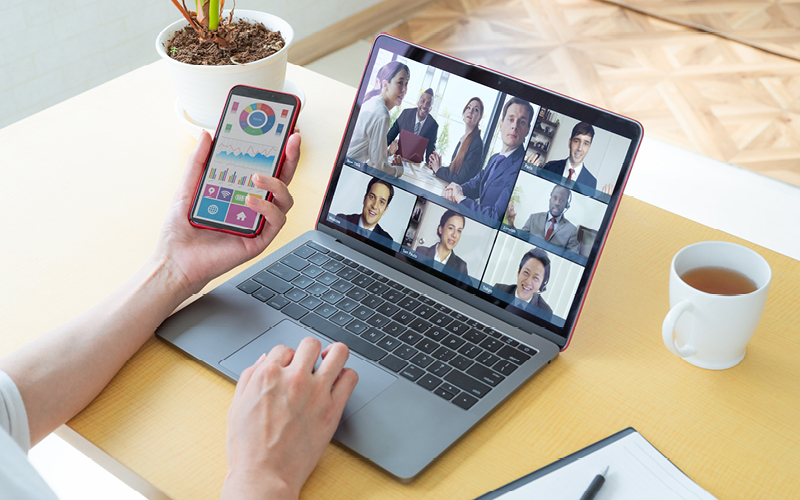
The first COVID-19 case was diagnosed in the United States on January 20 and by March, the pandemic had spread across the country, including to Massachusetts. Fenway Health was quick to respond, moving the majority of our work force offsite and expanding our telehealth program to help protect our staff and patients from COVID-19 transmission while ensuring our community continued to have access to high quality health care. We also implemented social distancing and masking policies for all staff and visitors at Fenway Health locations and stepped up our pharmacy deliveries, allowing patients and clients to keep up with their prescriptions without needing to make an extra trip outside their homes.
Fenway’s Behavioral Health Department quickly transitioned to virtual visits and our support groups, including trans health and groups for the broader LGBTQIA+ community, successfully moved to Zoom, allowing folks to continue to receive critical care for their emotional and mental well-being. Our Behavioral Health Department also implemented virtual drop-in hours allowing low barrier, no appointment required access to psychotherapy five days a week for clients who have a hard time keeping appointments, including those in our Medication Assisted Treatment program.
LGBTQIA+ seniors are more likely to live alone and be at risk of social isolation than other older adults. To help address this, volunteers make calls to Fenway’s LGBT Aging Project’s database, offering help with immediate needs like grocery store runs, prescription pickups, and dropping off face masks. Even more importantly, these calls provide seniors with a much needed human connection.
Our Access Drug User Health Program was forced to shut down its drop-in centers in Cambridge and Jamaica Plain in response to the pandemic. In order to ensure that our clients continued to receive the care and services they rely on to stay healthy and safe, the Access team moved to a mobile outreach model, heading out on foot, bike, and by van to meet clients where they are at in the community.
The health delivery innovations we’ve put in place, such as telehealth, are removing barriers to care in ways that will matter for years to come For example, we now offer services to LGBTQIA+ people in 20 other states who are unable to find quality care that is culturally competent in their local communities.
COVID-19 Testing & Contact Tracing
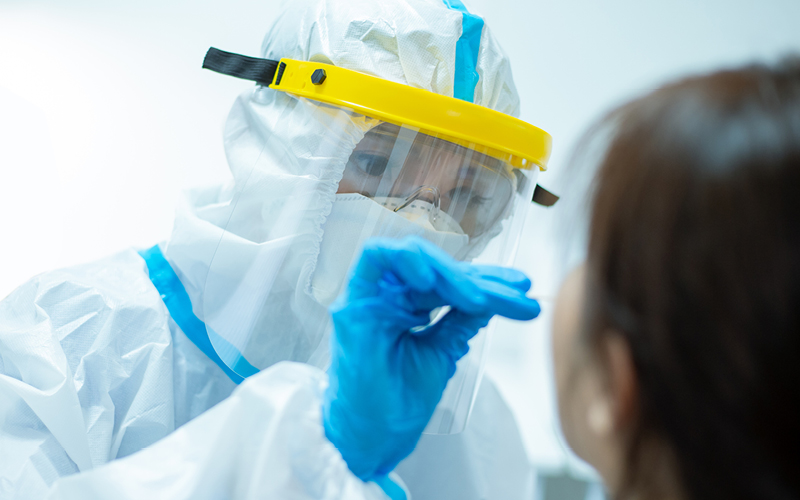
In early May, Fenway partnered with the Boston Public Health Commission to begin COVID-19 testing in a parking lot near our 1340 Boylston Street location. We test both symptomatic and asymptomatic people and there is no charge to the patient for the test.
In conjunction with our testing initiative, we also began working with the MA Community Tracing Collaborative to help accelerate efforts to contain the spread of COVID-19 by scaling up the state’s capacity for contact tracing. Contact tracing, which entails identifying and contacting individuals who may have been exposed to COVID-19 so they can isolate/self-quarantine to prevent further spread, is a time-tested public health intervention that has proven to be an essential tool in bringing infectious disease outbreaks under control.
The collaboration was a partnership between the MA COVID-19 Command Center, the Department of Public Health, the Commonwealth Insurance Connector Authority, Partners in Health, and community health centers. Members of Fenway’s Public Health Programs assisted with this initiative for 6 months, adapting their experience and expertise with contact tracing in the area of HIV, STI, and Hepatitis C transmission. The team also brought multilingual Spanish, Vietnamese, and Portuguese capacity as well as experience working with LGBTQIA+ communities.
Research, Policy, & Education
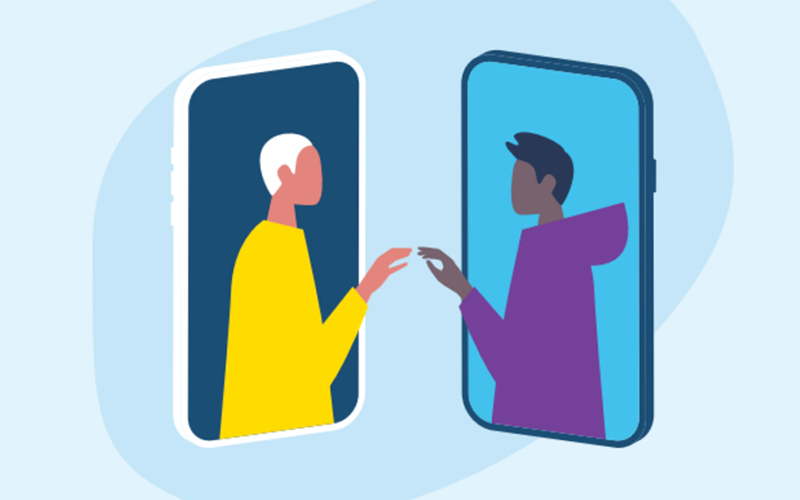
The Fenway Institute’s vaccine trial experience goes back more than 25 years, when we enrolled the first participants in anti-HIV vaccine trials funded by the National Institutes of Health. Since then, Fenway has run more than a dozen vaccine trials. Because we have a clinical trials research infrastructure in place that includes a team of experienced clinical research staff, an independent ethics review board, and a dedicated community engagement team that can recruit participants from all risk groups, we were one of a handful of community health centers across the country asked to join the COVID-19 Prevention Network, the NIH’s consortium to evaluate vaccines and other promising preventive strategies.
The Fenway Institute has more than 2 dozen faculty leading projects focused on sexual and gender minority health, HIV and other infectious diseases, and other community health research. Many of these projects have been adapted to understand the impact of COVID-19 on LGBTQIA+ people, and on sexual health. In response to COVID-19, TFI researchers have developed new protocols for the conduct of projects, including video-interviews, web-based surveys, and home delivery of kits for self-collection of specimens.
When it became apparent that our National LGBTQIA+ Health Education Center’s popular Advancing Excellence in Sexual & Gender Minority Health conference could not be held in person, staff quickly pivoted, putting together a virtual version of the event in less than two weeks. The event was a success and will serve as a model for our Advancing Excellence in Transgender Health Conference in fall 2020.
At the same time, we worked to educate our patients, clients, and community about COVID-19 and its effects on the people we serve. We launched a COVID-19 web page to provide information and resources. Our public policy team published a brief titled Coronavirus, COVID-19, and Considerations for People Living with HIV and LGBTQIA+ People and our public health staff created a guide to COVID-19 and sexual health. We also used our blog to help keep our community informed about issues like racism, bias, and COVID-19, published information on safely protesting in the age of COVID, and started a petition to help protect those experiencing homelessness from COVID-19
